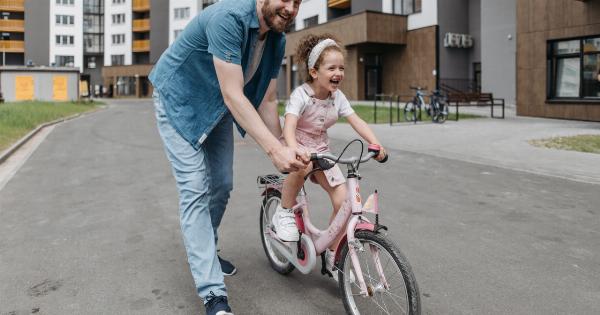In today’s fast-paced and high-pressure society, it is becoming increasingly important to address mental health issues in all age groups.
While awareness and understanding of mental health have grown in recent years, a recent survey has shed light on a concerning trend – the lack of open discussions about mental health between parents and their children. This survey highlights the need for greater emphasis on mental health education and communication within families.
The Importance of Mental Health Discussions
Mental health is a critical aspect of overall well-being, and research consistently shows that early intervention and support can have a significant impact on an individual’s mental health outcomes.
Adolescence is a particularly vulnerable period when mental health issues often arise, and the support system within the family plays a crucial role.
When parents and children engage in open and honest discussions about mental health, it fosters a supportive environment that encourages seeking help when needed.
It also helps to reduce stigma and fosters resilience in children, equipping them with the necessary tools to navigate challenges effectively.
The Survey Results
The survey, conducted among a diverse group of parents and children aged 10-18, aimed to gauge the frequency and quality of mental health discussions within families.
Shockingly, the results revealed that only 20% of parents reported having regular conversations about mental health with their children.
Furthermore, a significant number of parents admitted feeling uncomfortable discussing mental health topics, with 40% of those surveyed expressing that they lacked the necessary knowledge and understanding to address these issues.
This lack of comfort and knowledge inhibits open conversations and prevents parents from providing appropriate support to their children.
On the other hand, the survey also showed that children were receptive to discussing mental health, with over 70% expressing a desire to talk about their emotions and mental well-being.
This disparity between children’s willingness and parents’ hesitancy highlights the importance of bridging the communication gap.
Barriers to Open Discussions
Several factors contribute to the current low rates of mental health discussions between parents and children.
Stigma and Misconceptions
Mental health stigma remains prevalent in society, making it difficult for parents to broach the subject with their children. Many parents are unaware of the signs and symptoms of mental health disorders, leading to misconceptions and fear.
Addressing these misconceptions and promoting accurate information about mental health are crucial steps in breaking down these barriers.
Lack of Education
Another significant barrier is a lack of education on mental health topics, both for parents and children. Many parents feel ill-equipped to discuss mental health because they have not received proper education and training on the subject.
Implementing mental health education programs in schools and providing resources for parents can improve their knowledge and confidence in addressing mental health with their children.
Communication Styles
The survey also highlighted differences in communication styles between parents and children. Some parents reported feeling uncomfortable discussing sensitive topics, like mental health, due to generational or cultural differences.
Encouraging dialogue and providing guidance on effective communication techniques can help bridge this gap.
Time Constraints and Priorities
Today’s fast-paced lifestyle often leaves little room for deep conversations. Many parents are juggling multiple responsibilities, leaving limited time for meaningful discussions with their children.
Recognizing the importance of mental health discussions and prioritizing them amidst busy schedules is essential.
Role of Media and Technology
The prevalence of media and technology in modern life also impacts the quality of conversations between parents and children.
Excessive screen time and unrealistic portrayals of mental health in the media can further perpetuate stigma and create unrealistic expectations that hinder open discussions. Promoting healthy media consumption habits and engaging in conversations about media portrayal can counteract these negative influences.
Addressing the Gap
Closing the gap in mental health discussions between parents and children requires a multi-faceted approach.
Educational Initiatives
Implementing mental health education initiatives in schools can equip both children and parents with the necessary knowledge and understanding of mental health issues.
This education should focus on providing accurate information, dispelling misconceptions, and promoting empathy and understanding.
Parental Training
Providing parents with mental health training and resources will enable them to navigate conversations about mental health confidently.
Workshops, online resources, and support groups can facilitate learning and encourage parents to foster open dialogues with their children.
Creating Safe Spaces
Creating safe spaces within families where mental health discussions are encouraged is crucial. Parents should actively listen, validate their child’s emotions, and promote an environment free of judgment.
Regular check-ins and setting aside specific time for discussions can help carve out dedicated spaces for mental health conversations.
Media Literacy
Media literacy programs that help children critically analyze media portrayals of mental health can equip them with tools to challenge unrealistic depictions.
Parents can play an active role in engaging their children in discussions about media and promoting healthy media habits.
Community Support
Building a supportive community where mental health is openly discussed can have a significant impact.
Collaboration between schools, mental health organizations, and community centers can create a network of support that reinforces the importance of mental health discussions.
The Way Forward
Mental health discussions between parents and children are pivotal in promoting emotional well-being and resilience.
The survey results highlight the urgent need to bridge the communication gap and prioritize mental health conversations within families.
By implementing comprehensive educational initiatives, providing training for parents, creating safe spaces, promoting media literacy, and fostering community support, we can foster a culture that embraces mental health conversations.
Together, we can empower parents and children to address mental health proactively and create a supportive environment that nurtures positive mental well-being.





























